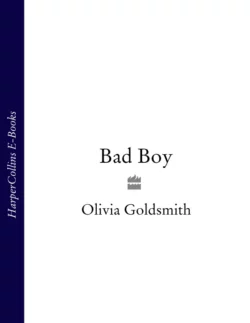Bad Boy

Olivia Goldsmith
Тип: электронная книга
Жанр: Современная зарубежная литература
Язык: на английском языке
Стоимость: 544.32 ₽
Статус: В продаже
Издательство: HarperCollins
Дата публикации: 16.04.2024
Отзывы: Пока нет Добавить отзыв
О книге: Jon is Mr Perfect – handsome (in a nerdy sort of way), caring, lots of money – so why can′t he get a girlfriend? Even his best friend Tracie always goes for bad boys; because women secretly love BAD. Jon′s desperate, but Tracie can help – she can teach him the Bad Boy Rules.A sharp haircut, cool new clothes and a complete attitude transplant later, and Jon′s the man of the moment. He can have any woman he wants, and does!But now Tracie′s not so happy… while her girlfriends are all fighting over the new Jon, she seems to be losing her best friend. And she′s starting to wonder – has she created a monster?